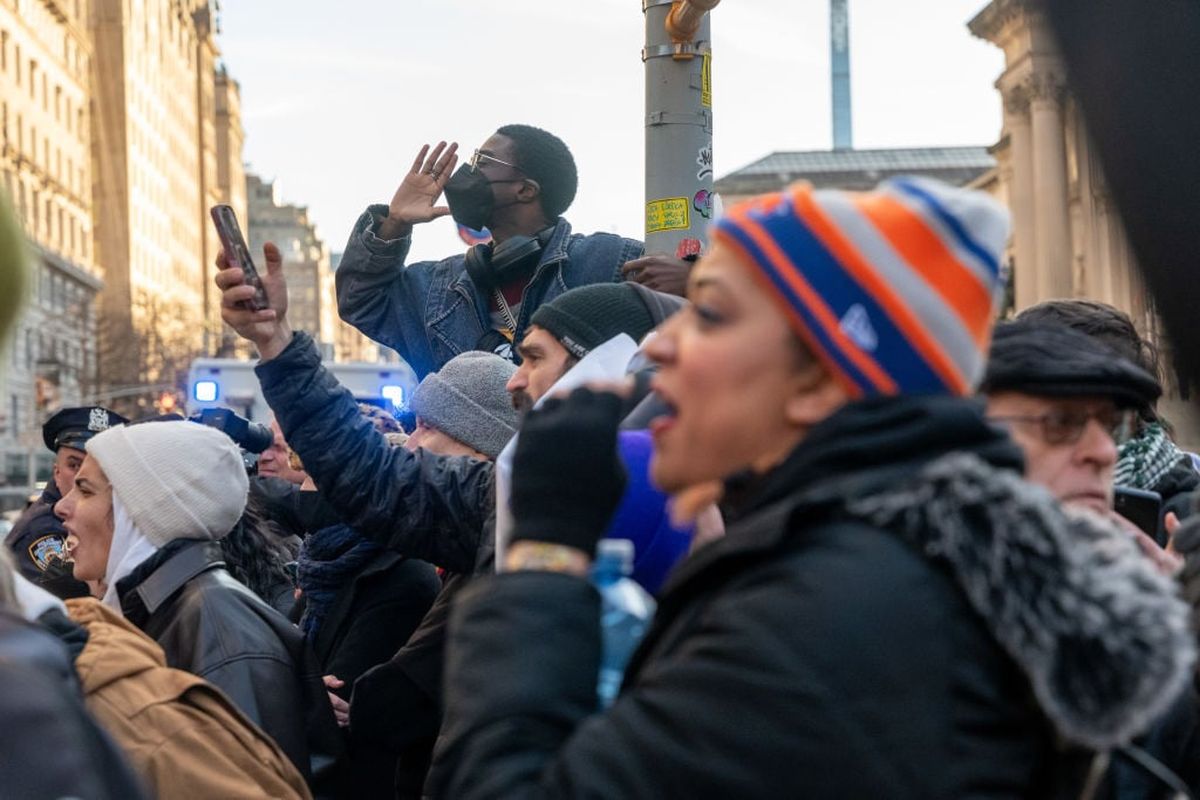What does Palestinian liberation have to do with Black people? That’s a question many Black Americans may have asked themselves as we collectively witness the ongoing violence in Gaza.
The Israeli government has launched a genocidal military operation in the name of eradicating Hamas, after Hamas brutally attacked peaceful Israeli concertgoers and took hostages. In response, Israel has unapologetically targeted refugee camps and hospitals, set up blockades to cut food, water, and electricity supplies, and manufactured conditions in which there are many ways for civilians to die. Israeli Prime Minister Benjamin Netanyahu has made it clear that he has no intentions of facilitating another humanitarian pause similar to the four-day pause at the end of November 2023, despite international calls for a ceasefire. There have been at least 29,000 Palestinian and 1,139 Israeli lives taken, and 73,000 Palestinians and 8,000 Israelis injured since October 7th, according to a live tracker updated by Al Jazeera; and thousands remain missing.
Individualist culture has taught us to only fend for ourselves and has actively combated opportunities for transnational and transracial solidarity by pitting groups against one another. However, the shared experiences of displacement and violence show that the Palestinian community and the Black community are fighting similar forces of oppression.To understand on a deeper level, we must examine Palestinian history, Black history, and what this moment truly means for all of us.
Israel’s war on Gaza may have caught international attention following the Oct. 7 Hamas attack, but there are decades of Israel’s mistreatment of Palestinians leading up to what is happening now. The Nakba in 1948, known as a time of mass displacement and dispossession of land for those who lived in Palestine by the direction of The United Nations’ Partition Plan to establish the state of Israel. This resulted in Palestinian land being cut in half, an Arab-Israeli War, and permanent displacement of Palestinians. The struggle for Palestinian liberation is interconnected with Black liberation in several ways, including their shared history of displacement.
Enslavement, gentrification and redlining are all examples of the displacement Black people have faced, causing the division of communities and lost opportunities to compete economically. Even this city is guilty; in Spokane, racist covenants on properties barred anyone who was not White from owning or residing in the property unless they were a domestic servant. Though not actively enforced, many of these covenants remain on the books.
Today’s displacement comes in multiple forms: economic, physical, and cultural. This is applicable to many communities of color, but impacts Black people at higher rates. Displacement due to an inability to afford the rising cost of living, being evicted from an apartment, or seeing culturally significant businesses or people disappear are all ways that this manifests.
Militarized violence has become a norm in conflicts abroad and at home. American policing has slowly inched towards military-like actions as they use more aggressive weapons and tactics better suited for a battlefield rather than a neighborhood. The history of policing and Black communities is no secret – an alarmingly disproportionate amount of deaths, arrests, and stops, and rarely justice for the communities who suffer.
The United States is heavily involved through financial and military support to Israel; billions of U.S taxpayer dollars have been sent overseas and used to kill thousands of civilians. A similar approach has been taken to the funding of police departments nationwide, with millions of dollars allocated for “cop cities’’ and no real commitment to changing the culture of policing to actually keep our communities safe. Though not entirely the same, the undertones of what Black communities and Palestinian communities face are similar, and fighting against both is necessary for collective liberation.
Emphasizing the importance of creating transracial and transnational solidarity, it is crucial to understand that advocating for the liberation of another group does not diminish the significance of our struggles. By standing in unity against moral wrongdoings such as ceaseless bombings and unwarranted financial support, we build a narrative that condemns such actions universally. Recognizing the intersections of these common struggles fosters a broader understanding of the fight against all oppression and creates a more inclusive and powerful collective movement.
